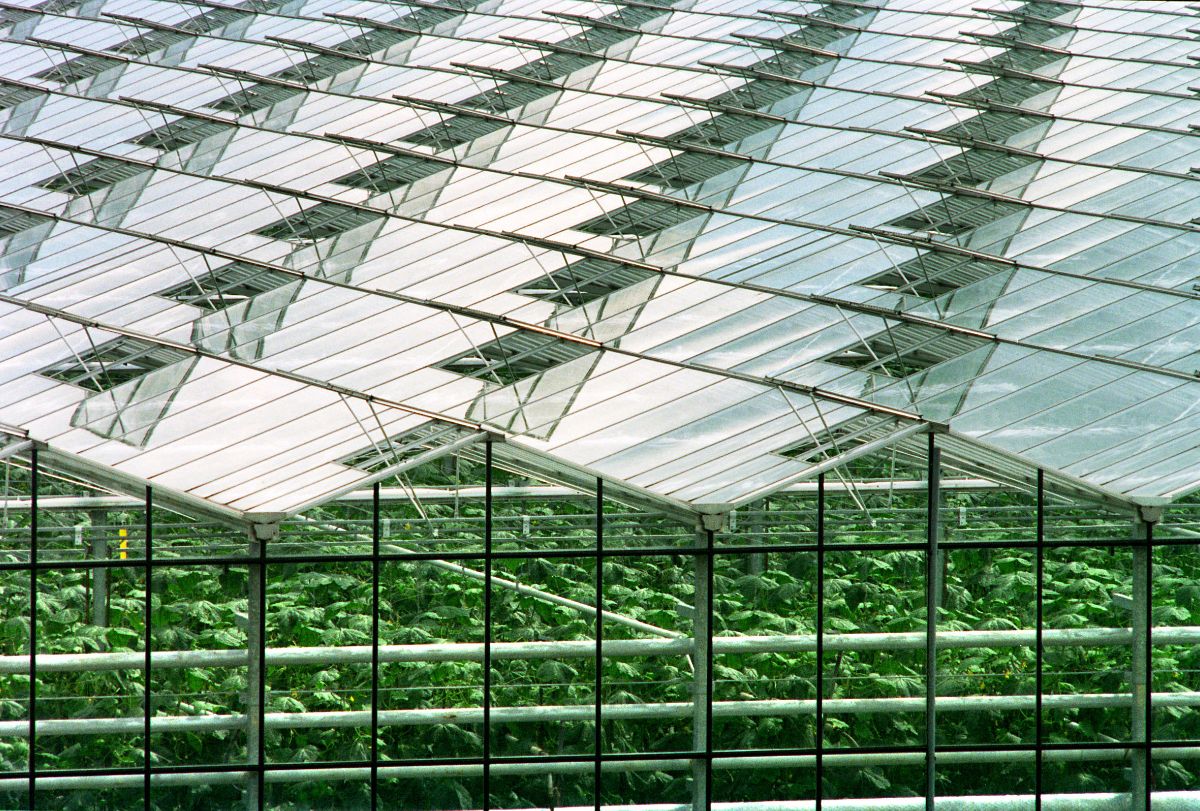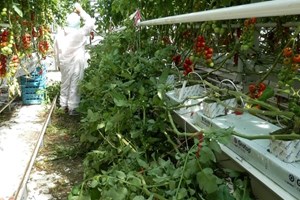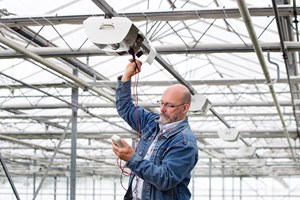Measures to prevent harmful greenhouse gases
This is how you can prevent greenhouse gases causing growth retardation

In the winter, air vents in greenhouses are seldomly used. Incorrect adjustment or use of equipment can lead to an accumulation of harmful greenhouse gases. What are the possible negative effects of toxic gases in your greenhouse? In this article, we will explain how you can prevent greenhouse gases causing growth retardation or even damage or loss of crop due to toxic greenhouse gasses.
During winter, growth retardation can easily occur due to toxic gases Use extreme sensitive gas measurement devices for monitoring on gases “So far, the demand is mainly when growers suspect something is wrong, because their crop is not looking ‘right’. But it should actually be part of the standard equipment of a horticultural company. Of course, it requires a one-off investment. After that, it gives you assurance that you are always creating and maintaining the best possible growing conditions. With some minor adjustments, you can also move the system, so you can monitor several sections”. – Patrick Voortman, Vulcan GT Image 1: A greenhouse gas analyzer (source: Mac View website) Another way of monitoring the greenhouse environment is the use of an indicator crop We’re available to help you If you found this interesting, we suggest these articles next: • 5 Useful Tips to Ensure Virus-Free Water
If the greenhouse is not ventilated for a long time due to winter conditions, a build-up of emission gases can quickly occur. The accumulation of gases can be caused by the use of CO2 from the boiler or Combined Heat & Power installation. Toxic gases can also be released from the soil or greenhouse- and cultivation equipment. This usually occurs at a slow pace which makes it hardly noticeable. A possible good solution to monitor the existence of toxic gases is the use of modern sensors.
Gases such as NO, NO2, C2H4, CO and CO2 can be measured with modern devices. Especially during the winter where there is little to no ventilation, this is an important measure that can prevent growth retardation. Such measurements are nowadays affordable and more greenhouses are being equipped with such systems as standard. Patrick Voortman of Vulcan GT, the North American supplier of EMS, experiences a demanding increase for this equipment.
This is a simple yet effective method to indicate something is wrong and needs further action. Click here to learn more about the cress indicator.
If you have questions or would like to learn more about our horticultural business insurance coverages, please contact us or your broker.


